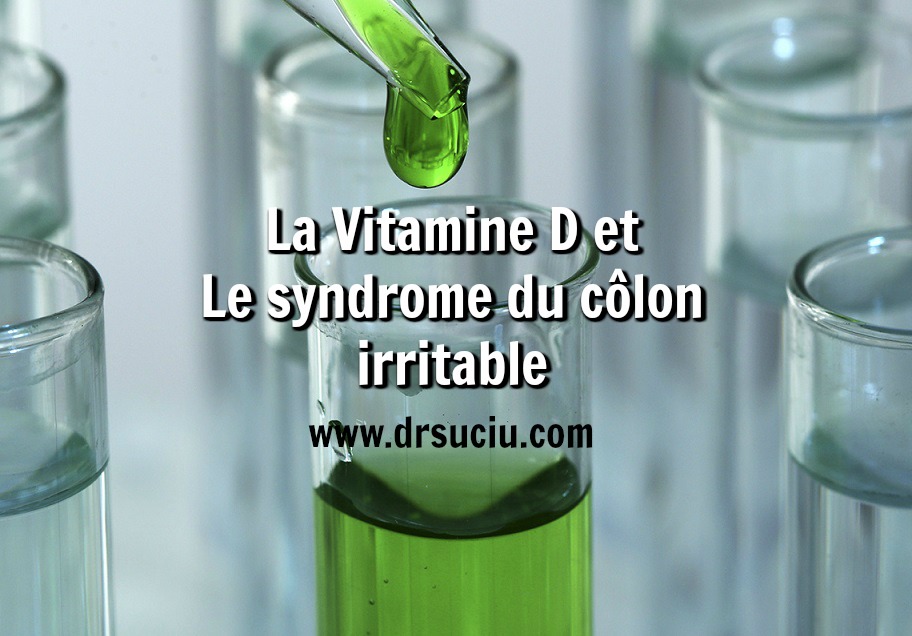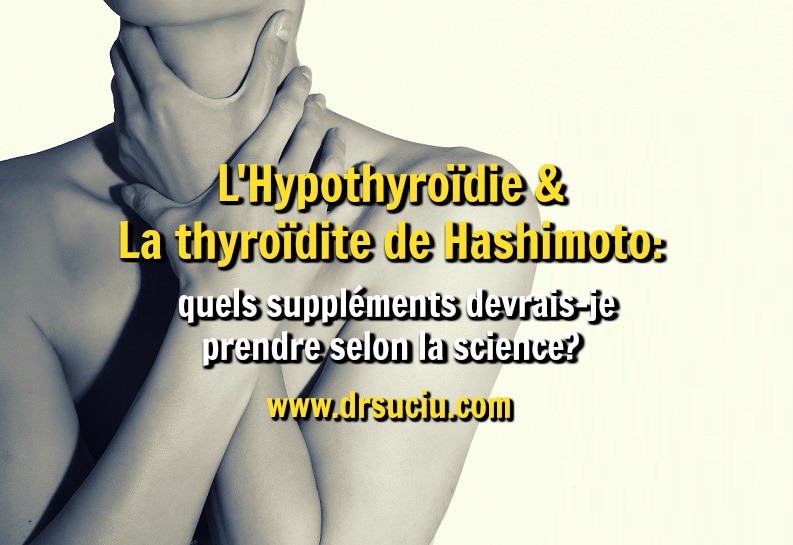|
L’état nutritionnel faible en sélénium est associé à un risque accru de maladie de la thyroïde. RÉFÉRENCE:
Veuillez lire l'article complet (en anglais seulement) : ABSTRACT OBJECTIVES: Epidemiological studies have supported the premise that an adequate selenium intake is essential for thyroid gland function. OBJECTIVE: The objective was to investigate whether the prevalence of thyroid disease differed in two areas that were similar, except for very different soil/crop selenium concentrations. DESIGN: Cross-sectional observational study. SETTING: The setting was two counties of Shaanxi Province, China, here defined as adequate- and low-selenium. PARTICIPANTS: A total of 6152 participants were selected by stratified cluster-sampling. MAIN OUTCOME MEASURES: Participants completed demographic and dietary questionnaires and underwent physical and thyroid ultrasound examinations. Serum samples were analyzed for thyroid function parameters and selenium concentration. Serum selenium was compared between different demographic, dietary, and lifestyle categories in the two counties. The relationship between selenium status, dietary factors, and pathological thyroid conditions was explored by logistic regression. RESULTS: Complete data sets were available from 3038 adequate-selenium participants and 3114 low-selenium participants in whom median (interquartile range) selenium concentrations differed almost 2-fold (103.6 [79.7, 135.9] vs 57.4 [39.4, 82.1] μg/L; P = .001). The prevalence of pathological thyroid conditions (hypothyroidism, subclinical hypothyroidism, autoimmune thyroiditis, and enlarged thyroid) was significantly lower in the adequate-selenium county than in the low-selenium county (18.0 vs 30.5%; P < .001). Higher serum selenium was associated with lower odds ratio (95% confidence interval) of autoimmune thyroiditis (0.47; 0.35, 0.65), subclinical hypothyroidism (0.68; 0.58, 0.93), hypothyroidism (0.75; 0.63, 0.90), and enlarged thyroid (0.75; 0.59, 0.97). CONCLUSIONS: Low selenium status is associated with increased risk of thyroid disease. Increased selenium intake may reduce the risk in areas of low selenium intake that exist not only in China but also in many other parts of the world. RÉFÉRENCE: J Clin Endocrinol Metab. 2015 Nov;100(11):4037-47. doi: 10.1210/jc.2015-2222. Epub 2015 Aug 25. Low Population Selenium Status Is Associated With Increased Prevalence of Thyroid Disease. Wu Q1, Rayman MP1, Lv H1, Schomburg L1, Cui B1, Gao C1, Chen P1, Zhuang G1, Zhang Z1, Peng X1, Li H1, Zhao Y1, He X1, Zeng G1, Qin F1, Hou P1, Shi B1. Une proportion importante de la population souffrant du syndrome du côlon irritable était carencée en vitamine D. RÉFÉRENCE:
Veuillez lire l'article complet (en anglais seulement) : ABSTRACT OBJECTIVES: Vitamin D has been found to be strongly associated with many systemic disorders. There has been an augmented interest within the medical community in vitamin D, especially its deficiency, in various systemic disorders. Although the role of vitamin D deficiency in irritable bowel syndrome (IBS) has not yet been established, studies are underway to clearly establish its role in the disease. The objective of our study was to elucidate and establish the role of vitamin D deficiency in IBS patients compared to a healthy control group. METHODS: This study is a comparative case control study of vitamin D deficiency in patients with IBS diagnosed with ROME 3 criteria of classification (the third ROME foundation classification) to an age and gender matched healthy control group. The vitamin D level was measured in both cohorts for comparison and the results interpreted statistically. Sixty patients with IBS and 100 healthy individuals were included as test and control groups, respectively, in the study. The mean serum vitamin D level (nmol/L) of IBS patients was compared to the control group. RESULTS: Vitamin D deficiency was detected in 49 patients (82%) in the IBS group and 31 patients (31%) in the control group. There was a statistically significant difference in the mean vitamin D level (p=0.025) between the IBS group and control group. CONCLUSIONS: Our study shows that vitamin D deficiency is highly prevalent in patients with IBS and these results seem to have therapeutic implications. Vitamin D supplementation could play a therapeutic role in the control of IBS. Oman Med J. 2015 Mar;30(2):115-8. doi: 10.5001/omj.2015.25. Vitamin D Deficiency in Patients with Irritable Bowel Syndrome: Does it Exist? Khayyat Y1, Attar S2. La thyroïdite de Hashimoto est une inflammation chronique du tissu thyroïdien dans lequel votre système immunitaire attaque la glande thyroïde. Ceci est une maladie auto-immune et conduit souvent à l'hypothyroïdie.
L'hypothyroïdie peut être due à un certain nombre de facteurs tels que : facteurs congénitales, maladies inflammatoires chroniques (maladies auto-immunes), traitement de l'hyperthyroïdie, de l’ablation de la thyroïde (chirurgie de la thyroïde), la radiothérapie autour du cou, la grossesse, l'alimentation végétarienne, les médicaments (comme le lithium) ainsi qu’a des déficiences nutritionnelles. Les micronutriments sont nécessaires pour renforcer le système de défenses antioxydantes déficient et pour la synthèse et la fonction de l'hormone thyroïdienne. Les niveaux moyens de vitamine E (alpha-tocophérol) étaient plus faibles chez les personnes atteintes de dégénérescence maculaire exsudative.
RÉFÉRENCE: Veuillez lire l'article complet (en anglais seulement) : Abstract OBJECTIVE: To investigate relationships between levels of tocopherols and carotenoids in the serum and age-related macular degeneration (ARMD). DESIGN: A nested case-control study within a population-based cohort. PARTICIPANTS: Cases included a sample of subjects with retinal pigment abnormalities with the presence of soft drusen (n = 127) or with late ARMD (geographic atrophy [n = 9]) or neovascular and exudative macular degeneration (n = 31). An equal number of controls (167 pairs) were selected from among participants in the Beaver Dam Eye Study. The controls had no photographic evidence of soft drusen, retinal pigment abnormalities, or late ARMD and were matched with cases for age, sex, and current smoking status. DATA COLLECTION: Presence and severity of ARMD were determined from masked grading of fundus photographs obtained from 1988 to 1990. Levels of individual carotenoids and tocopherols were determined in serum collected at the same time. RESULTS: Average levels of individual carotenoids were similar in cases and controls. Average levels of vitamin E (alpha-tocopherol) were lower in people with exudative macular degeneration (P = .03). However, the difference was no longer statistically significant after controlling for levels of cholesterol in the serum. Persons with levels of lycopene, the most abundant carotenoid in the serum, in the lowest quintile were twice as likely to have ARMD. Levels of the carotenoids that compose macular pigment (lutein with zeaxanthin) in the serum were unrelated to ARMD. CONCLUSIONS: Very low levels of one (lycopene) but not other dietary carotenoids or tocopherols were related to ARMD. Lower levels of vitamin E in subjects with exudative macular degeneration compared with controls may be explained by lower levels of serum lipids. Arch Ophthalmol. 1995 Dec;113(12):1518-23. Serum antioxidants and age-related macular degeneration in a population-based case-control study. Mares-Perlman JA1, Brady WE, Klein R, Klein BE, Bowen P, Stacewicz-Sapuntzakis M, Palta M. https://www.ncbi.nlm.nih.gov/pubmed/7487619 De faibles niveaux de vitamine D sont associés à la nouvelle apparition de douleurs chroniques généralisées - il y eu une association positive brute entre l’hypovitaminose D et la douleur chronique généralisée. RÉFÉRENCE:
Veuillez lire l'article complet (en anglais seulement) : ABSTRACT BACKGROUND: Chronic widespread pain (CWP) is a global musculoskeletal disorder leading to disability and a reduced quality of life. Low levels of serum vitamin D has long been proposed to be associated with CWP, but previous research remains inconclusive. OBJECTIVES: To determine whether hypovitaminosis D was independently associated with CWP. STUDY DESIGN: Meta-analysis of observational study. METHODS: Electronic databases were searched for studies published up to November 2014 comparing the prevalence of hypovitaminosis D and serum vitamin D levels between participants with and without CWP. The crude and adjusted odds ratios (ORs) of hypovitaminosis D with CWP were calculated. Subgroup analysis according to gender, threshold of hypovitaminosis, and definition of patients was performed, as well as meta-regression to test the linear relationship between crude ORs and the latitude of study locations. RESULTS: Twelve studies were included, comprising 1,854 patients with CWP. The patient group showed a significantly higher risk of hypovitaminosis D than the control group (crude OR, 1.63; 95% CI, 1.20-2.23). The association was slightly attenuated after adjusting confounders, with a pooled adjusted OR of 1.41 (95% CI, 1.00-2.00). There was an increase in ORs of hypovitaminosis D using a lower diagnostic value of serum vitamin D (8 and 10 ng/mL). The subgroup analysis according to gender and definition of CWP did not reveal significant between-group differences. The meta-regression showed no linear relationship between latitude and the crude ORs. CONCLUSIONS: There was a positive crude association between hypovitaminosis D and CWP, and the association was likely to remain after adjusting confounding factors. Use of a cut-off value of hypovitaminosis D (8-10 ng/mL) could better define the population with and without CWP. Further prospective follow-up studies are warranted to clarify the causal relationship between hypovitaminosis D and CWP. Pain Physician. 2015 Sep-Oct;18(5):E877-87. Is Serum Hypovitaminosis D Associated with Chronic Widespread Pain Including Fibromyalgia? A Meta-analysis of Observational Studies. Hsiao MY1, Hung CY2, Chang KV1, Han DS1, Wang TG3. https://www.ncbi.nlm.nih.gov/pubmed/26431141 De nombreuses maladies neurodégénératives, diabète, cancer, fibromyalgie, maladies cardio-vasculaires et musculaires ont été associés à de bas niveaux de CoQ10.
RÉFÉRENCE: Veuillez lire l'article complet (en anglais seulement) : ABSTRACT Coenzyme Q10 (CoQ10) or ubiquinone was known for its key role in mitochondrial bioenergetics as electron and proton carrier; later studies demonstrated its presence in other cellular membranes and in blood plasma, and extensively investigated its antioxidant role. These two functions constitute the basis for supporting the clinical indication of CoQ10. Furthermore, recent data indicate that CoQ10 affects expression of genes involved in human cell signalling, metabolism and transport and some of the effects of CoQ10 supplementation may be due to this property. CoQ10 deficiencies are due to autosomal recessive mutations, mitochondrial diseases, ageing-related oxidative stress and carcinogenesis processes, and also a secondary effect of statin treatment. Many neurodegenerative disorders, diabetes, cancer, fibromyalgia, muscular and cardiovascular diseases have been associated with low CoQ10 levels. CoQ10 treatment does not cause serious adverse effects in humans and new formulations have been developed that increase CoQ10 absorption and tissue distribution. Oral CoQ10 treatment is a frequent mitochondrial energizer and antioxidant strategy in many diseases that may provide a significant symptomatic benefit. RÉFÉRENCE: Front Biosci (Landmark Ed). 2014 Jan 1;19:619-33. Clinical applications of coenzyme Q10. Garrido-Maraver J1, Cordero MD2, Oropesa-Avila M1, Vega AF1, de la Mata M1, Pavon AD1, Alcocer-Gomez E1, Calero CP1, Paz MV1, Alanis M1, de Lavera I1, Cotan D1, Sanchez-Alcazar JA1. https://www.ncbi.nlm.nih.gov/pubmed/24389208 |
AVIS IMPORTANT:
Veuillez prendre connaissance de cet avertissement et rappelez-vous que le site www.drsuciu.com ne saurait remplacer une consultation avec vos professionnels de la santé. L'information fournie sur le site web www.drsuciu.com est d'ordre général. Avant de prendre toute décision de nature médicale ou si vous avez des questions concernant votre état de santé personnel, adressez-vous à un professionnel de la santé qualifiée. D'aucune manière ces points de vue, commentaires et renseignements ne constituent une recommandation de traitement (préventif ou curatif), une ordonnance ou un diagnostic, ni ne doivent être considérés comme tels. Archives
Août 2017
|








 Flux RSS
Flux RSS